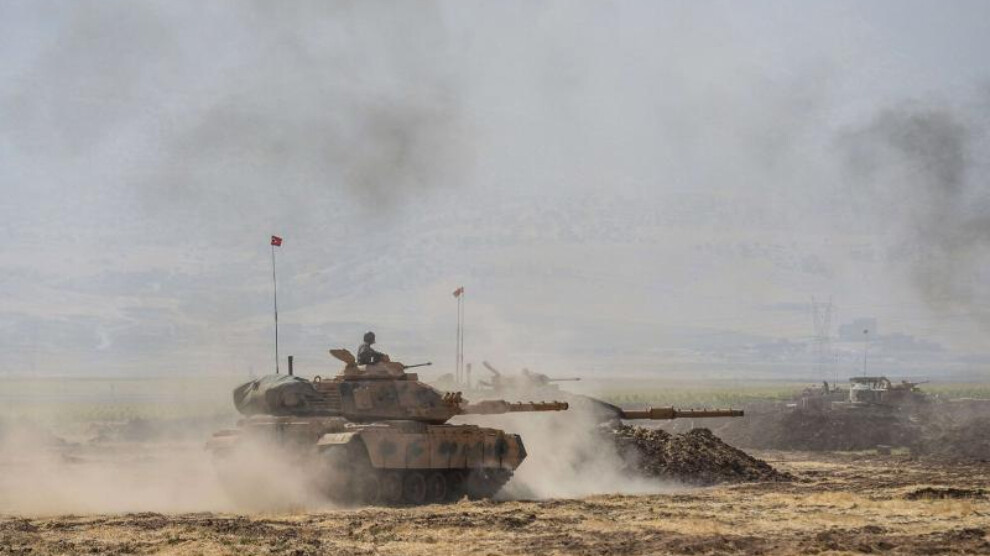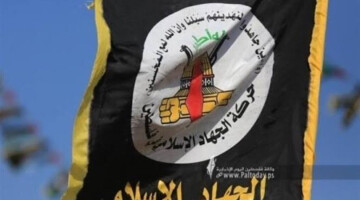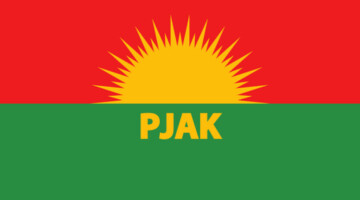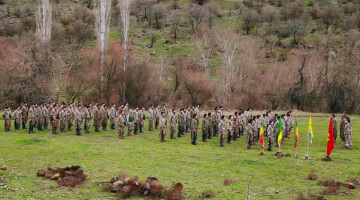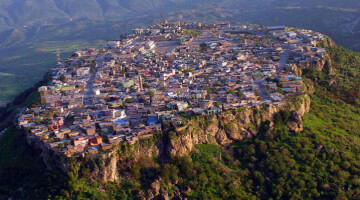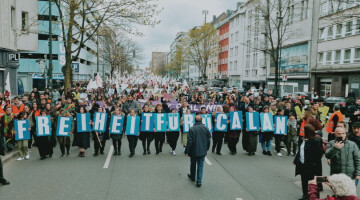The Turkish government is currently trying something that it did not succeed at in 2009. It woos its international partners with offers for closer cooperation, promises domestic reforms and thus gives the impression of a democratic new beginning. Exactly the same promises made in 2009 resulted in a massive wave of arrests, particularly against Kurdish political activists - around 10,000 people were arrested in the context of the so-called `KCK trials' - and increased military operations against the Kurdish HPG guerrillas. The same can be expected for 2021. This is indicated by a wide variety of current developments.
For several weeks, calls for a ban of the HDP in Turkey have been growing louder. Driven by the staunchly nationalist MHP - government partner of the AKP - the HDP is currently equated with terrorism and demanded to put an end to it for the benefit of Turkey. Neither the opposition parties such as the CHP or Iyi Parti, nor Erdogan's AKP raise public objections. In connection with the widespread assumption that the presidential elections scheduled for 2023 in Turkey could be brought forward, a ban of the HDP can be expected this year. Former AKP cadres such as Davutoglu - Turkish foreign minister during the renewed escalation of the war against the Kurdish population in 2015 - and Ali Babacan have been positioning themselves with their newly founded parties for some time. Their pro-Kurdish rhetoric - known from Erdogan at the beginning of his term in office in 2002 - aims to fill the void that would arise in the political landscape as a result of an HDP ban in new elections.
Since 2019, the Turkish government has taken offensive steps in Libya and around Cyprus, which represent a serious provocation for the EU and especially its member states in the Mediterranean region. Turkey has relocated thousands of Islamist mercenaries, hundreds of Turkish soldiers, heavy military equipment and drones to Libya and thus decisively escalated the war there. In the waters around Cyprus too, attempts were made to create facts through the use of Turkish gas exploration ships accompanied by warships of the Turkish Navy. After the initial war propaganda and thunderous threats from Turkish government representatives, the tone has now become quite different. Turkey is now ready to negotiate again with Greece. At the same time, Turkey is trying to join an alliance between Israel, Greece, Cyprus and the United Arab Emirates in the dispute over the exploitation of the gas reserves in the eastern Mediterranean. So here too there has been a lot of talk recently about negotiations and cooperation. In Libya, all the Turkish weapons and the Islamists deployed have not been able to prevent Turkey from playing a decisive role in finding a political solution in the country, particularly thanks to successful Egyptian and French diplomatic efforts. Accordingly, it has become correspondingly quiet in the Turkish palaces with regard to this topic.
It would be wrong to consider the current Turkish charm offensive a real change in strategy. It is just as wrong to claim that Turkey is acting from a position of strength because of its numerous provocations in Libya, the Mediterranean, Armenia and northern Syria. Turkey's strategic agenda continues to be the occupation of the area from Aleppo to Kirkuk - and thus the restoration of old Ottoman areas of power within the framework of the Misak-ı Millî (Turkish political manifesto after the First World War with the aim of annexing northern Syria and northern Iraq into the territory of the at that time newly emerging Turkish nation state). Central to the implementation of these plans is the smashing of the Kurdish resistance - including the peoples allied with them, e.g. in North and East Syria - and their most strongly organized force, the PKK. Since Turkey knows very well that it is too weak to do this on its own, it is currently trying to gain the necessary international support in a kind of desperate attempt. Hence their current charm offensive. Erdogan, his government and the Turkish state apparatus are currently trying to win the support of the EU and the USA for something very concrete with the help of nice words and practical concessions in Libya and the eastern Mediterranean: a large-scale military operation in South Kurdistan (northern Iraq) this winter/spring.
At the regional level, Turkey has the support of South Kurdistan's KDP (Kurdistan Democratic Party). After the recent visit by the Turkish Defense Minister, the Chief of Staff and the head of the MIT secret service to Baghdad on January 18, it looks as if the Iraqi government has refused to give the green light to the Turkish occupation of northern Iraq. Turkey will therefore seek European and American political and military support all the more intensely in the coming days and weeks. Berlin is obviously more than ready for this. There is no other way of understanding the visit by the German Foreign Minister to Ankara on January 18 this year. And the British-Turkish free trade agreement, which was concluded at the end of last year, also points to close future cooperation between the two countries.
So the nice words from Ankara have an ugly goal: war in South Kurdistan. Against this, a great deal of resistance will develop in the region itself, which could drag South Kurdistan and Iraq into a chaotic whirlpool. Anyone who wants to prevent the huge human suffering associated with it and is not prepared to let their own government participate in such crimes will have to act. Because wars can only be waged if society does not prevent them.
*Arif Rhein is an employee of Civaka Azad - Kurdisches Zentrum für Öffentlichkeitsarbeit e.V.
RELATED NEWS:

